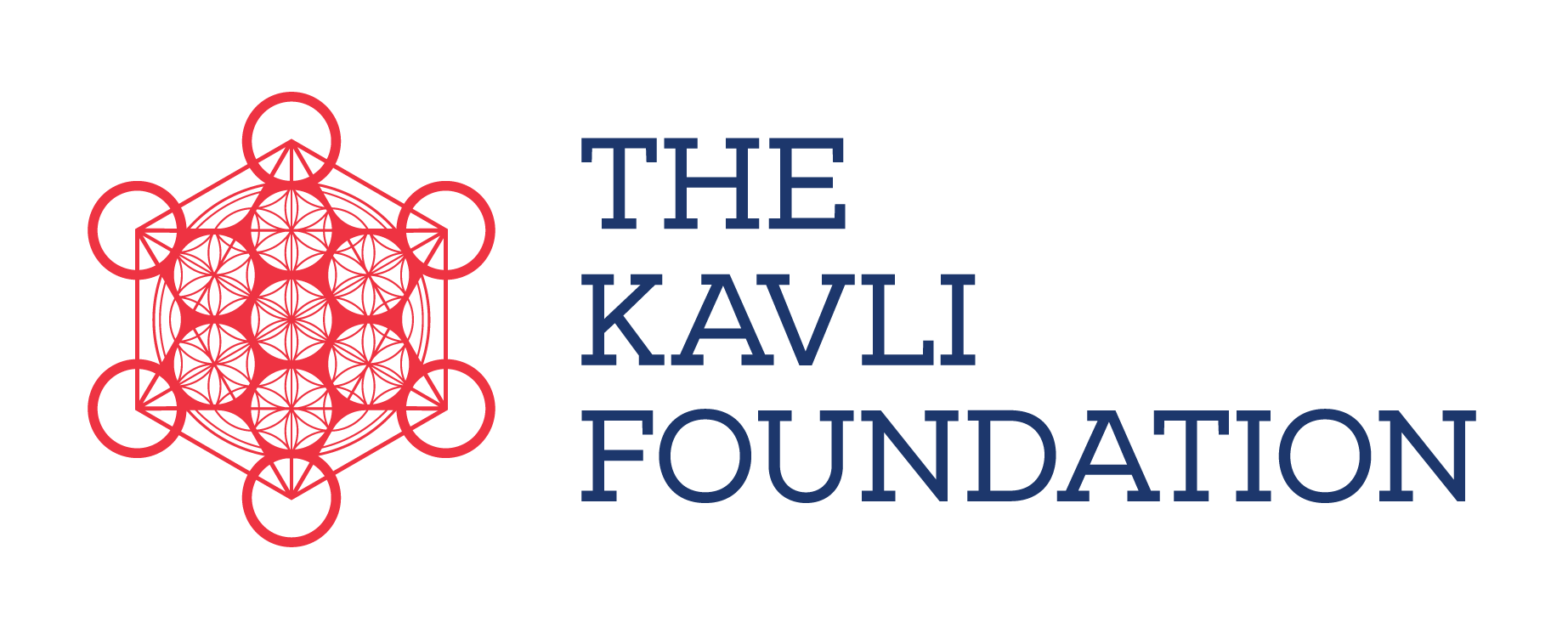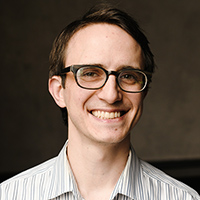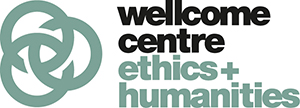|
2019 Annual Meeting
Chicago, IL, USA
October 17-18
Meeting Program
Mapping Neuroethics: An Expanded Vision
- Many thanks to our meeting sponsors and stipend contributors for their generous support
- Readings listed below include speaker interviews and articles identified by speakers
MEETING VENUE
Radisson Blu Aqua Hotel
221 North Columbus Drive
Chicago, IL USA 60601
THURSDAY, OCTOBER 17, 2019
9:00–9:30 AM
Registration / Networking
- Check in at the registration desk
- Install posters in the Baltic–Bering Room
- Light breakfast
9:30 AM
Welcome
- Hank Greely, INS President
- Ilina Singh and Arleen Salles, INS Program Committee co-chairs
9:45–10:45 AM / OPENING LECTURE
Matthew L. Baum
Harvard Medical School
- Introduction by Ilina Singh, University of Oxford (UK)
- Lecture by Matt Baum on 'The Neuroethics of Biomarkers'
- Discussion and Q&A with Nita Farahany, Duke Law School (USA)
Readings
- Neurotechnology produces a better diagnosis, but what are the ethical implications for people with mental illness? Interview with Matt Baum
- The neuroethics of biomarkers: what the development of bioprediction means for moral responsibility, justice, and the nature of mental disorder. Book
- Can Facebook’s Machine-Learning Algorithms Accurately Predict Suicide? Article
- Predicting schizophrenia: Calculator can predict psychosis risk. Article
- Progress in predicting suicide. Article
10:45 AM–12:15 PM / PACIFIC BALLROOM
Ethics and the Imprisoned Brain
As researchers begin to investigate techniques for altering inmates' brains to rid prisons of what Anthony Burgess called ‘the ultra-violence,’ the ongoing neuroethics discourse about biological approaches to criminal justice takes on renewed urgency. Speakers will address the promise and peril of neuro-interventions for incarcerated persons, whether in research and development or implementation and oversight.
- Olivia Choy, Nanyang Technological University / University of Pennsylvania (Singapore/United States)
- Farah Focquaert, Ghent University (Belgium)
- Andrés Molero-Chamizo, University of Huelva (Spain)
- Jan Christoph Bublitz, University of Hamburg (Germany)
- Moderated by Roland Nadler, University of British Columbia (Canada)
Readings
- Neuroscience May Help Curb Prison Violence – But Should It? Interview with Roland Nadler
- Benign Biological Interventions to Reduce Offending. Article
- Bilateral prefrontal cortex anodal tDCS effects on self-reported aggressiveness in imprisoned violent offenders. Article
- In Spain, prisoners’ brains are being electrically stimulated in the name of science. Article
12:15–1:30 PM
Boxed Lunches / Poster Presentations
1:30–2:45 PM / Concurrent Sessions
Pacific Ballroom
Preclinical Interventions in Psychiatric and Neurological Disorders
As we get better at using genetic, metabolic or behavioral biomarkers to predict future susceptibility for neurological and psychiatric syndromes, the problem of medical management of people in such preclinical states becomes more trenchant. Testing preventive drugs, informing patients or parents of risks, managing false positives, and treating patients with little discernible illness raise significant ethical questions that we will discuss with a panel of experts.
Speakers
- Caesar Atuire, University of Ghana (Ghana)
- Emily Largent, University of Pennsylvania (USA)
- Gabriela Pavarini, University of Oxford (UK)
- Moderated by Anna Wexler, University of Pennsylvania (USA)
Readings
- BeGOOD: Becoming Good: Early Intervention and Moral Development in Child Psychiatry. Website
- Comprehension of an Elevated Amyloid Positron Emission Tomography Biomarker Result by Cognitively Normal Older Adults. Article
- Attitudes Toward Physician-Assisted Death From Individuals Who Learn They Have an Alzheimer Disease Biomarker. Article
- Pragmatic Neuroethics: Lived Experiences as a Source of Moral Knowledge. Article
Caribbean-Caspian Room / WELLCOME SYMPOSIUM
Disorders of Consciousness: Concepts, Culture and Prognosis
This session will explore the importance of concepts when addressing disorders of consciousness. Speakers will discuss the cultural dimensions and ethical implications of selecting concepts, how concepts can impact practice protocol and medical decision-making, and the potential consequences of categorizing patients.
- Joseph J. Fins, Weill Cornell Medical College (USA)
- L. Syd M Johnson, Michigan Technological University (USA)
- Laura Specker Sullivan, College of Charleston (USA)
- Moderated by Hannah Maslen, University of Oxford (UK)
Readings
- Ethical, palliative, and policy considerations in disorders of consciousness. Article
- Pure Experience and Disorders of Consciousness. Article
- Prognostication of chronic disorders of consciousness using brain functional networks and clinical characteristics. Article
- Inference and Inductive Risk in Disorders of Consciousness. Article
BREAK / 2:45–3:00 PM
3:00–4:00 PM / Concurrent Sessions
Abstract Presentations
Two concurrent sessions of authors who submitted an abstract will be selected to give a talk about their neuroethics research and area of study. Each talk will be about 10-15 minutes in length and a question and answer period will follow the full set of talks.
Pacific Ballroom
- Ashwini Nagappan, University of Pennsylvania (USA)
- Demetrio Sierra-Mercado, Baylor College of Medicine / University of Puerto Rico (USA)
- Andreas Wolkenstein, LMU Munich (Germany)
- Introductions by Adrian Carter, Monash University (Australia)
Caribbean-Caspian Room
- Timothy Brown, University of Washington (USA)
- Jayashree Dasgupta, Sangath (India)
- Armani Porter, Duke University (USA)
- Introductions by Roland Nadler, University of British Columbia (Canada)
TRAVEL TIME / 4:00–4:30 PM
4:30–7:00 PM / PUBLIC PROGRAM
Should we trust technology to provide mental health care?
The INS and Northwestern Medical School have organized a public event to discuss the question: Should we trust technology to provide mental health care? Presenters will describe how digital technologies are being used to support mental health and the importance of the human medical professional in some mental health interventions.
- David C Mohr, Northwestern University (USA)
- Ilina Singh, University of Oxford (UK)
- Nicole Martinez-Martin, Stanford University (USA)
- Moderated by Kelly Michelson, Northwestern University (USA)
Location
Daniel Hale Williams Auditorium
McGaw Pavilion, Northwestern University
240 East Huron Street
Chicago, IL 60611
Agenda
- 4:30pm – Doors open for attendees
- 4:30–5:15pm – Meet and greet reception
- 5:15–6:30pm – Speaker Presentations
- 6:30–7:00pm – Group discussion and audience questions
- 7:00pm – Event concludes
7:30 PM
Affinity Groups Dinner
Venue to be announced
FRIDAY, OCTOBER 18, 2019
9:00–9:25 AM
Networking
9:25 AM
Welcome
- Ilina Singh and Arleen Salles, INS Program Committee co-chairs
9:30 AM–12:00 PM
Dilemmas in Global Neuroethics
The existence of several national-level brain research initiatives and the priority given to investment in neuroscientific research make evident the importance of unveiling and reflecting on the values driving the research and of addressing the ethical, social, and philosophical issues raised by it. One goal of the session is to have panelists representing the different brain initiatives briefly address a few neuroethics issues, identifying and highlighting important cultural aspects.
To what extent can human attributes be modeled?
- Moderated by Tom Buller, Illinois State University (USA)
- Khara Ramos, National Institutes of Health (USA)
- Norihiro Sadato, National Institute for Physiological Sciences (Japan)
Beyond disease, what are aspirational applications?
- Moderated by Marcello Ienca, ETH Zurich (Switzerland)
- Adrian Carter, Monash University (Australia)
- Arleen Salles, Uppsala University (Sweden)
Engaging neuroethics: what are the questions?
- Moderated by Karen Rommelfanger, Emory University (USA)
- Judy Illes, University of British Columbia (Canada)
- Sung-Jin Jeong, Korea Brain Research Institute (South Korea)
Discussion
- World cafe discussion led by Paul Root Wolpe, Emory University (USA)
Readings
- Neuroethics Questions to Guide Ethical Research in the International Brain Initiatives. Article
- A Neuroethics Backbone for the Evolving Canadian Brain Research Strategy. Article
- A Neuroethics Framework for the Australian Brain Initiative. Article
- The Human Brain Project: Responsible Brain Research for the Benefit of Society. Article
- Neuroethical Issues of the Brain/MINDS Project of Japan. Article
- Responsibility and Sustainability in Brain Science, Technology, and Neuroethics in China — a Culture-Oriented Perspective. Article
- The NIH BRAIN Initiative: Integrating Neuroethics and Neuroscience. Article
- Korea Brain Initiative: Emerging Issues and Institutionalization of Neuroethics. Article
12:00–1:00 PM / BALTIC ROOM
Poster Presentations
- Poster presentations and judging in the Baltic–Bering Room
- Attendees may vote for their favorite poster
1:00–2:30 PM
Boxed Lunch / Business Meeting
- Presentation of the Steven E. Hyman Award for Distinguished Service to the Field of Neuroethics
- Announcements from INS President Hank Greely
- Updates from INS committee chairs
2:30–4:00 PM
Incapable Patients and Psychiatric Neurosurgery: What do Law and Ethics Have to Say?
Many laws define psychosurgery to include deep brain stimulation (DBS) for psychiatric indications, a field under intensive exploration and expansion. This session will consider the history, present and future, of the regulation of invasive psychiatric neuromodulation such as DBS, with particular attention to the questions of whether there is a need for specific law, and what its optimal contents should be.
Speakers
- Laura Cabrera, Michigan State University (USA)
- Eran Klein, Oregon Health & Science University / University of Washington (USA)
- Lauren Sankary, Cleveland Clinic (USA)
- Moderated by Jennifer Chandler, University of Ottawa (Canada)
Readings
- Working at the Intersection of Brain Science, Law and Ethics Interview with Jennifer Chandler
- Consensus Guidelines for Stereotactic Neurosurgery for Psychiatric Disorders. Article
- Report and Recommendations Psychosurgery. Washington Report
- Evolution in the Treatment of Psychiatric Disorders: From Psychosurgery to Psychopharmacology to Neuromodulation. Article
- Should DBS for Psychiatric Disorders be Considered a Form of Psychosurgery? Ethical and Legal Considerations. Article
- Psychosurgery: avoiding an ethical redux while advancing a therapeutic future. Article
- Scientific and ethical issues related to deep brain stimulation for disorders of mood, behavior, and thought. Article
- Ethical guidance for the use of deep brain stimulation in psychiatric trials and emerging uses: Review and reflections. Chapter
BREAK / 4:00–4:30 PM
4:30–5:30 PM / FRED KAVLI DISTINGUISHED NEUROETHICS LECTURE
Martha J. Farah
Center for Neuroscience & Society
University of Pennsylvania
- Introduction by Hank Greely, INS President
- Lecture on ‘Socioeconomic status and brain development: from science to policy’
Readings
- The brain and socioeconomic status: how do we apply it to real-world policy? Interview
- State of the Art Review: Poverty and the Developing Brain. Article
- The Poverty of the Neuroscience of Poverty: Policy Payoff or False Promise? Article
- Socioeconomic status and the brain: prospects for neuroscience-informed policy. Article, PDF
5:30–6:30 PM
Awards Reception
- Presentation of poster and essay awards by Hank Greely
- Recognition of Neuroethics Essay Contest winners by Dr. Michael Patterson and Marcello Ienca, INS Student/Postdoc Committee chair
- Beverages and hors d’oeuvres served
Registration
Register to attend this meeting.
You can also subscribe to receive email updates and announcements.
Stipend Contributors
- James and Elisabeth Ewing
- Dr. Michael Patterson
- Anonymous
|
















